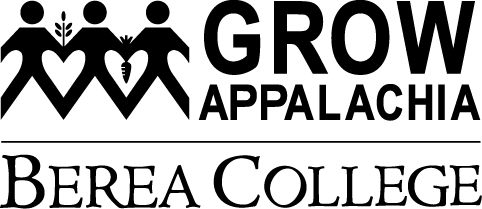Garden Grants Program Overview
Grow Appalachia seeks to impact food insecurity in central Appalachia, including Kentucky, Ohio, Tennessee, West Virginia, and North Carolina, by helping as many Appalachian families grow as much of their own food as possible through grantmaking to non-profits throughout the region.
Grow Appalachia partners with non-profit organizations throughout central Appalachia to administer a Grow Appalachia gardening program at the local level, delivering organic production resources and technical assistance through a hired partner site coordinator. We have partnered with community-based non-profits, shelters for victims of intimate partner abuse, drug rehabilitation centers, churches, universities, schools, medical clinics, and extension offices.
Since 2010, Grow Appalachia has partnered with more than 60 non-profits across 6 states of central Appalachia who have worked with over 6,700 families to grow nearly 7 million pounds of organic food, cook it in heart-healthy ways, and preserve and sell excess when possible.
Annual Timeline
Program Requirements
When selecting partners, we look for organizations which are rooted in and led by their community, have a history and knowledge of food security work, and demonstrate the ability to responsibly manage grant funds.
We only partner with non-profits. We cannot award individuals or farms. Organizations may be fiscally sponsored by a 501(c)3 entity to manage their grant funds.
Non-profit partners deliver program activities either by hiring a site coordinator or supplementing current staffing for the site coordinator position. Many partners will also utilize funding to support several team members performing different roles.
Grow Appalachia is committed to local leadership, which is why grants are administered at the community level and programs are led by local community members.
Each partner and their coordinator are responsible for recruiting their program participants. Many coordinators advertise via social media, newspaper, radio, direct word-of-mouth, church bulletins, and their own organization’s communication channels. Coordinators often ask interested participants to complete a short application so they can collect their contact information and outline requirements for the program.
Throughout the year coordinators are expected to host classes (outlined in the next section) and to provide ongoing support for their gardeners. During the busiest time of the growing season, coordinators are expected to visit each of their gardeners at least once per season to help troubleshoot issues and to celebrate successes with their gardeners. Part of the grant reporting process includes tracking harvest data throughout the season. Coordinators are expected to find efficient ways for collecting that information with their participants. (See section below on reporting.)
Grow Appalachia requires partners to host 6 classes: (1) garden planning, (2) garden planting, (3) organic garden maintenance, (4) food preservation, (5) heart-healthy cooking, and (6) season extension.
We encourage coordinators to think carefully about the timing of their classes. For example, garden planning classes should be offered early in the year, and food preservation classes should be offered when participants are harvesting from their gardens.
Classes are required for all Grow Appalachia participants. Partners may host more than 6 classes depending on the particular interests of their community of gardeners.
The curriculum for these classes is not standardized, and we invite you to draw on the expertise within your community or region for workshop instructors. Grow Appalachia staff have put together a Growing Resource Library for coordinators to use as starting points for workshop content. Check out these class schedules here and here from the 2024 Build It Up East TN program. You are also encouraged to reach out to Grow Appalachia staff for resources and curriculum ideas.
Funds from the Grow Appalachia Garden Grant program can only go towards organic gardening, education, and resources. This is to ensure the safest production methods for gardeners and their garden ecosystems. Grow Appalachia staff are available to support any coordinator who is new to organic production, and the Growing Resource Library is a great tool for organic recommendations.
Coordinators are expected to procure all growing supplies and equipment for their gardeners, and to help them get distributed as safely and effectively as possible. We strongly encourage all coordinators start purchasing their materials as early as possible. It is common for coordinators to purchase seeds and supplies in bulk and then repackage them into smaller amounts for their gardeners to help save costs. Most partners have found it helpful to distribute supplies at workshops so that participants are encouraged to be in attendance and to connect in person when it is safe to do so. Throughout the pandemic, partners have found ways to offer hybrid learning opportunities and schedule windows of time for participants to pick up supplies. We defer to each partner and their own policies for safety throughout the pandemic.
All partners are expected to report bi-monthly between April-November each program year (4 total reports) using a provided Excel spreadsheet template. These reports cover an extensive list of quantitative data on the program including: grant expenses, workshops, participant information, harvest data, and more. These reports are meant to be a tool for partners to monitor program progress and to collect data that could be used for other grant opportunities as well. Grow Appalachia staff offer training on the reporting template.
Partners are also expected to submit a monthly blog March-October each program year. Coordinators may choose to blog on program updates, recipes, share stories from their participants, or more technical writing about a production practice. Blogs are a great way for us to hear program updates as well as a great opportunity for the larger Grow Appalachia community to connect with each other. Grow Appalachia staff offer training on blog submission through its WordPress website.
All partner sites are required to send at least one representative to the annual All Hands Gathering in February each year at Berea College in Berea, KY. Grow Appalachia will cover lodging and meal expenses, and your site will be responsible for funding travel costs.
Submitting Your Proposal
To apply for Garden Grant funding, you must (1) submit an online proposal, (2) upload your program budget, and (3) upload your overall organizational budget. Draft proposals submitted by September 1st will receive feedback from our staff before the final submission date of October 1st.
1. Online Proposal Form
Starting in the fall of 2024, we have transitioned to an online application form. If you submit your application by the September 1st 5pm draft proposal deadline, you will receive feedback from our team and be able to edit your responses and uploads before the final October 1st 5pm deadline.
Tell us about your community, your organization, and your role in that organization. Has your organization addressed food security & access issues in your community? Does your community have trouble accessing land to grow food & rely more on community gardens?
Why does your community need a Grow Appalachia program?
How will you use this funding, and how will it impact your community? How many families will you work with? How many backyard gardens will you work with? How will you recruit & retain your participants?
Does your community have trouble accessing land to grow food? We evaluate community garden-based applications on a case by case basis.
Who will you be working with in your community?
What is your experience delivering organic gardening education in your community? Have you faced any resistance to adopting these practices? If so, why? How are you working to overcome these barriers?
How will you administer those classes in your community to your participants?
Please describe the nature of your team and how they will deliver the different aspects of the program. How will you delegate report & blog submission responsibilities?
Which aspects of your program could continue without funding from Grow Appalachia?
2. Budget
Applicants must upload TWO budgets: (1) their program budget using the template linked below, and (2) your non-profit’s overall organizational budget. You can upload both budgets by using the application form.
Your program budget must utilize the 6 budget categories listed here.
Labor requests may not exceed more than 50% of the total request. Please show a detailed account of how many hours will be worked and the hourly rate for each position throughout the program year. Many programs have more than one person hired to administer the program throughout the year.
Please estimate how many miles you will travel throughout the year to visit your gardeners and your community gardens. Fuel for you to pick up supplies should go in travel, but fuel for tractors should go under consumables.
Please include mileage costs for the annual All-Hands Gathering in February in Berea, KY, where coordinators come together to network, learn, and plan. Grow Appalachia will cover lodging and meals while at the gathering, but please factor in other travel costs to get to the gathering.
In this section, please list costs for the 6 required classes, including supplies, instructor fees, and classroom rental fees.
These are items that will still be around after the first year. We consider these investments. Equipment includes: hand tools, t-posts, a walk-behind tractor, drip irrigation supplies, pressure canners, etc.
Consumables are anything that will likely not be around the second year. These items include: seeds, plants, organic pesticides, fertilizer, fuel for tractors and tillers, jars and canning supplies, etc.
Administrative costs cannot exceed more than 5% of the total budget. These costs include fiscal management costs, incidental office supplies, phone and internet costs, etc. that are directly related to your Grow Appalachia program.
- Conventional non-organic sprays, fertilizers or treated seeds
- Fruit trees
- Pigs, goats, cows or other meat animals
- Conference travel or registration
- Workshop honoraria
- “Consultant” positions
- Flowers or decorative plants
- General facility maintenance
- Gardening books
- Rain barrels
- Program vehicles
- Computers*
- Decorative garden infrastructure
*Garden Grant partners are eligible for free refurbished laptops through Berea College


